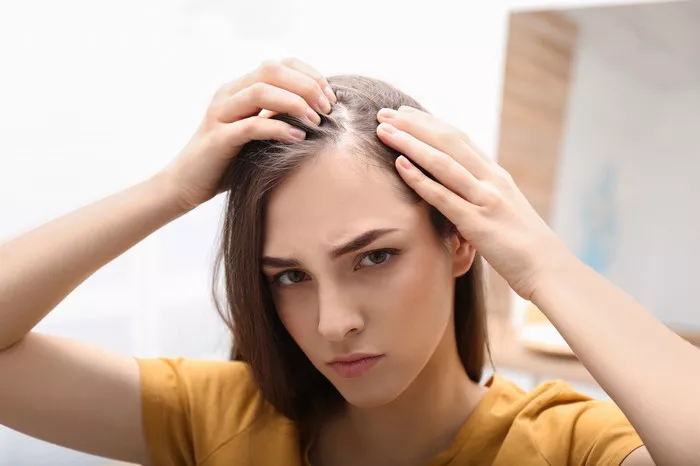Hair fall, though a common occurrence, can be distressing when it reaches extreme levels. Experiencing excessive hair loss can affect one’s self-esteem and confidence, prompting individuals to seek effective solutions. This article aims to provide comprehensive insights into the causes of extreme hair fall, along with practical remedies and preventive measures to address this concern effectively.
Understanding Extreme Hair Fall:
Hair fall is a natural process in which old hair sheds to make way for new growth. However, when the rate of hair loss exceeds the rate of hair regrowth, it leads to noticeable thinning and balding patches, indicating extreme hair fall. Various factors contribute to this condition, ranging from genetics and hormonal imbalances to lifestyle choices and environmental factors.
Common Causes of Extreme Hair Fall:
1. Genetics: Family history plays a significant role in determining one’s susceptibility to hair loss. Individuals with a family history of baldness or thinning hair are more likely to experience extreme hair fall.
2. Hormonal Changes: Hormonal imbalances, particularly during pregnancy, childbirth, menopause, or thyroid disorders, can disrupt the hair growth cycle, leading to excessive shedding.
3. Stress and Anxiety: Chronic stress triggers hormonal fluctuations that can impact hair follicles, causing them to enter a resting phase prematurely and resulting in increased hair fall.
4. Nutritional Deficiencies: Inadequate intake of essential nutrients such as vitamins (especially Biotin, Vitamin D, and Vitamin E), minerals (like iron and zinc), and protein can weaken hair strands and contribute to excessive shedding.
5. Medical Conditions: Certain medical conditions like alopecia areata, scalp infections, and autoimmune disorders can accelerate hair loss and require specific treatment approaches.
6. Overuse of Hair Products: Excessive use of styling products, frequent heat styling, and harsh chemical treatments can damage the hair shaft, leading to breakage and hair fall.
7. Poor Hair Care Practices: Improper hair care routines, including rough handling, vigorous brushing, and tight hairstyles, can weaken the hair roots and contribute to increased shedding.
Remedies for Extreme Hair Fall:
1. Consultation with a Dermatologist: If experiencing extreme hair fall, it is advisable to consult a dermatologist or a trichologist to identify the underlying cause and formulate an appropriate treatment plan.
2. Medical Treatments: Depending on the cause of hair fall, medical treatments such as topical minoxidil, oral finasteride, or hormone therapy may be recommended to stimulate hair growth and prevent further loss.
3. Nutritional Supplements: Incorporating supplements containing essential vitamins, minerals, and proteins into your diet can help address nutritional deficiencies and promote healthy hair growth.
4. Scalp Treatments: Regular scalp massages with essential oils like rosemary, peppermint, or coconut oil can improve blood circulation, nourish hair follicles, and strengthen the hair roots, reducing hair fall.
5. Lifestyle Modifications: Adopting stress-reducing techniques such as meditation, yoga, or deep breathing exercises can help stabilize hormone levels and alleviate stress-related hair fall.
6. Gentle Hair Care Practices: Switching to mild, sulfate-free shampoos, using a wide-toothed comb for detangling, and avoiding excessive heat and chemical treatments can minimize hair damage and breakage.
7. Hydration and Diet: Drinking an adequate amount of water daily and consuming a balanced diet rich in fruits, vegetables, lean proteins, and healthy fats can promote overall hair health and reduce hair fall.
Preventive Measures for Long-Term Hair Health:
1. Maintain a Healthy Lifestyle: Regular exercise, adequate sleep, and a balanced diet are essential for overall well-being, including healthy hair growth.
2. Protective Styling: Opt for hairstyles that minimize tension on the hair shaft, such as loose braids or ponytails, to prevent mechanical damage and hair breakage.
3. Limit Chemical Treatments: Reduce the frequency of chemical treatments such as perming, coloring, or straightening, as these can weaken the hair structure and increase the risk of hair fall.
4. Avoid Tight Hairstyles: Refrain from wearing hairstyles that pull on the hair follicles, such as tight ponytails or buns, to prevent traction alopecia and minimize hair loss.
5. Regular Hair Trims: Trim your hair regularly to get rid of split ends and prevent further damage, promoting healthier hair growth.
Conclusion:
Experiencing extreme hair fall can be a distressing concern, but with the right knowledge and proactive measures, it is possible to address and manage this condition effectively. By identifying the underlying causes, adopting appropriate remedies, and implementing preventive measures, individuals can promote long-term hair health and regain their confidence and self-esteem. Remember, seeking professional advice and maintaining a holistic approach are key to overcoming extreme hair fall and achieving vibrant, healthy hair.


